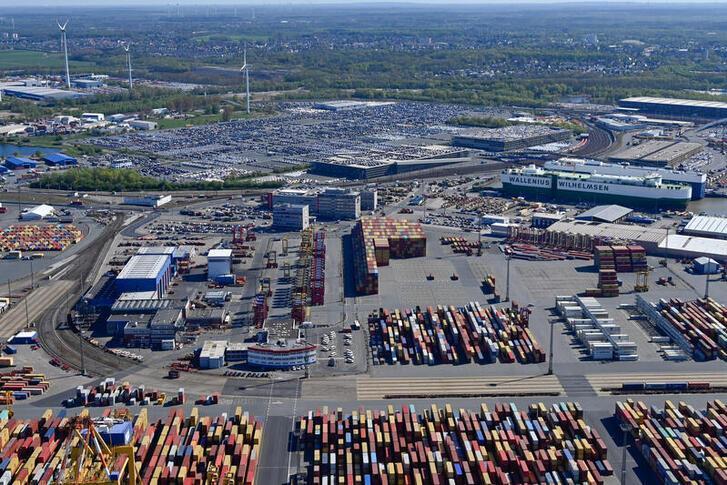US Overtakes China as Germany's Top Trade Partner
In a telling shift that could reshape Europe's largest economy, Germany now trades more with the US than China. What does this signify?
Published May 11, 2024 - 00:05am

Image recovered from zawya.com
Germany has witnessed a major shift in its trade partnerships as the United States has surpassed China as the country's top trade partner in the first quarter of this year. This development, calculated by Reuters using official German statistics, holds significant economic and geopolitical implications. From January to March, German trade with the US – encompassing both exports and imports – totaled €63 billion, exceeding the trade flow with China, which was just short of €60 billion.
In 2023, China had secured its position as Germany's primary trade partner for the eighth consecutive year, with trade volumes hitting €253 billion, just slightly ahead of the US. However, a combination of robust US economic performance and a decline in both exports to and imports from China has altered the dynamics. Commerzbank economist Vincent Stamer attributed the change to the robust economy of the US and the increasingly sophisticated production capabilities in China, reducing its reliance on German imports.
Germany's government notably aims to lessen its economic exposure to China due to political differences and has accused Beijing of unfair trade practices. However, specific policies to mitigate this dependency remain vague. Conversely, trade relations with the US suggest a reorientation motivated in part by geopolitical factors, as the US represents about 10% of Germany's goods exports and China's share has fallen below 6%.
The change underscores ongoing global economic trends unfavorable to Germany's economic model and reflects a process of reorienting away from China towards the transatlantic partnership with the US. This realignment may be driven by political imperatives as well, with the German economy nearly stalling in the first quarter while the American economy grew by 3% relative to the same period last year.
While the shift illustrates a current trend, it's uncertain whether this will be a long-term change in Germany's trade strategy. Factors, including future US administration policies and market openness, could potentially halt or reverse this process. Nevertheless, the intersection of trade, geopolitical events, and political decisions is increasingly steering the economic orientation of nations. Germany's pivot from China to the United States could signal a broader reconfiguration of global trade dynamics in the years to come.








